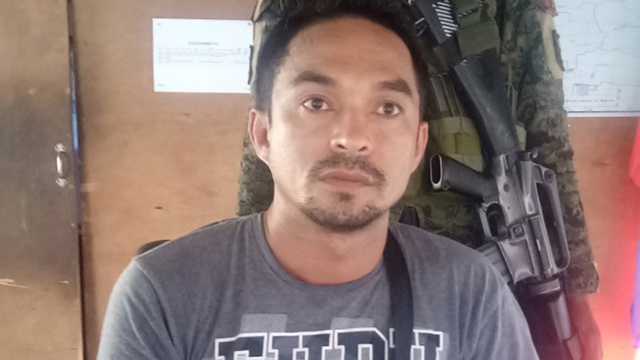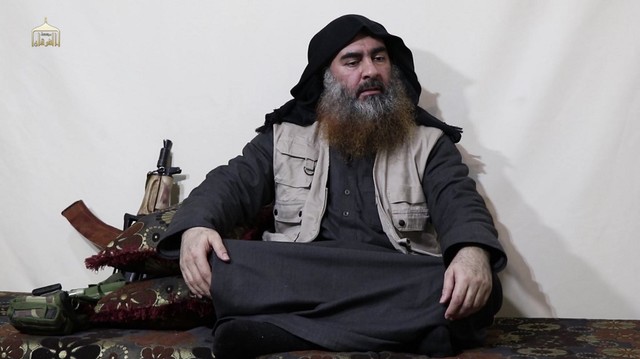From The News Lens (Apr 29. 2019):
The Maoist Guerrillas of the Philippines Are Now Pointing Their Guns at China
Why you need to know
The New People's Army and affiliated communist groups in the Philippines have no love for the modern-day Chinese Communist Party.
Filipino communist guerrillas of the New People’s Army (NPA) have been around for five decades, a feat that was marked with the group’s 50th anniversary March 29. The date itself mirrors the founding of the HUKBALAHAP, the old guerrilla army that confronted the Japanese occupation of the country during World War II. The new iteration of freedom fighters have identified an additional enemy: Chinese encroachment.
The NPA is led by the Communist Party of the Philippines (CPP), whose ideological standpoint is firmly Marxist-Leninist-Maoist. Maoist China had a more lasting impact on the modern generation of activists from the 1970s. Many had gone to China to see first-hand the socialist practices at work. Edgar Jopson, a key figure of the anti-martial law uprisings of the 1970s, was one such individual enamored with what he saw in Beijing which contributed to him adopting communist ideals and subsequently joining the NPA.
Nowadays, it seems the guerrillas have their guns firmly pointed at China – along with President Rodrigo Duterte’s government whom, they say, is collaborating with Beijing by
giving up territorial claims in the West Philippine Sea while allowing a massive influx of Chinese
businesses and
workers. The rebels say he not only bows down to U.S. imperialist interests but now to Chinese
territory grabbing and
interventionism.

Credit: Reuters / TPGPhilippines President Rodrigo Duterte (R) welcomes Chinese leader Xi Jinping during a state visit to Manila in December 2018.
It may seem hard to imagine how a group founded on something so closely identified with China now bears a desire to repel any Chinese incursions. To them and for many others, China has come a long way from the beacon of working-class socialism it once portrayed itself as to the world.
‘Capitalist roaders’
Professor Sarah Raymundo of the Center for International Studies at the University of the Philippines says that China owes much of its current superpower status to the socialist principles it demonstrated during the era of Mao Zedong. At the same time, its military and economic encroachment in the Asia-Pacific especially region betrays its ‘proletarian’ ethics of serving the oppressed.
“If it were not for the period in which the socialist revolution in China was able to establish independence and assert the right to self-determination from imperialist incursions, it would have not been the economic giant or the imperialist that it is now,” Raymundo told The News Lens.
But was this the intention of Mao all along? To shape the already enormous country into a political juggernaut for the region, exporting not only its goods and services but its doctrines as well? Raymundo argues that there is a fundamental divergence from Maoism in China that has been going on for decades, signified in many ways by the tragic Tiannamen Square massacre in 1989.
“The Tiannamen Square massacre was a student-led protest movement against the Communist Party of China that had by that time embraced capitalism and the state fascism that goes with it. They were protesting the betrayal of communism. They were against the forced capitalist opening up of the global economy that will not benefit the majority.”
She harkens back to Mao’s identification of “capitalist roaders” in the Chinese Communist Party during the Cultural Revolution. These were individuals in key positions who, intentionally or unwittingly, made steps for a return to the capitalist model even while retaining a proletarian moniker.
“The Communist Party was sabotaged from within by capitalist roaders. Thus, what was developed during the revolution – independent and self-determining economy, a capacitated and huge labor force, conditions for industrialization, among others – were then diverted and offered to the altar of capitalism.”
This is a particular kind of capitalism whose aggression she noted is well on its way towards militarism versus its neighboring countries as is often seen throughout history.
Recently, former President and now Speaker of the House
Gloria Macapagal-Arroyo reiterated her position to “welcome without restriction” the influx of Chinese investments.
At the same time, Filipinos have felt cheated by the massive inflow of the Chinese workers into the job economy while many are either struggling domestically or looking abroad for opportunities. Duterte had already submitted that
Chinese nationals should be left free to work here, even if their numbers are so high, almost nearing the population of Filipino migrants in Hong Kong and China.
It makes sense, then, why the NPA would observe Maoist thought while wholly rejecting China and its close ties with the Philippine government. This was fundamentally a different framework of a nation and ideology that had taught them so much.

Credit: AP / TPGMembers of various revolutionary organizations under the banner of the Communist Party of the Philippines mark the 48th anniversary of the New People's Army on March 29, 2017.
No signs of stopping
At the turn of the new year, all ceasefires and intentions for peace negotiations between the revolutionaries and the Philippine government had gone up in smoke. The Armed Forces of the Philippines, or AFP, chided the NPA’s 50 years as a “
total failure.” They said that in the last year alone, 11,000 guerrilla fighters had surrendered and re-integrated into society after becoming disillusioned with the struggle and seeing the error of their ways.
Last month, former AFP General and now secretary of the Department of Interior and Local Government
Eduardo Ano declared that the CPP-NPA will be crushed within two years. This came after Duterte had terminated the appointment of any new peace negotiators, effectively putting another nail in the coffin for any talks between the two parties to resume.
Maybelle Guerrero, an NPA combatant who also works with the CPP’s information bureau, hit back at the AFP’s belittlement of their struggle. She said: “Failure is not being able to resolve 50 years of legitimate demands, 50 years of reasons for continuing a revolutionary war and 50 years of bigotry, fascism and ignorance towards the grievances of the masses.”
According to Guerrero, the main goals of the CPP-NPA still are relatively unchanged after 50 years of struggle. They maintain that their mission still rings true for the country’s oppressed. “The NPA remains geared towards developing the people's war from the current middle phase of the strategic defensive to the advanced phase, by waging extensive and intensive guerrilla warfare, mobilizing and arming the masses in their numbers, carrying out widespread land reform and building the units of the people's government across the nation,” Guerrero said.
On the question of China’s involvement, she said: “It is unfortunate that the government’s friendship with China serves as an additional burden for ordinary Filipinos. However, at the same time, we stand ready to receive the inevitable increase in the ranks of people who have lost faith in the exploitative system of Philippine society and seek the revolution as their new home.”
The involvement of foreign superpowers in the domestic counter-insurgency frameworks of the military is not something new, according to Guerrero. While, at the moment, they have not seen any direct indication of China doing this, the United States has long been a proponent of developing military strategies and methods for the AFP.
“We have long foreseen the possibility that U.S. troops will be increasingly involved in counter-guerrilla ground operations,” Guerrero said. “Their advisers have long been stationed in AFP camps, often directing operations and handling drone surveillance. Special units of the AFP such as the Light Reaction Regimen and the 1st Brigade Combat Team are under direct operational control (OpCon) of the U.S. military.”
Boldly, she also declares that given a situation of “all-out involvement” in suppressing the Filipino struggle or invading the country, the NPA stands ready to “mount a strong national war” – whether it involve the aggression of the U.S. or the relative new dominion of China.
Brown like Mao
The NPA often marks its anniversary by celebrating in the countryside with locals who are supportive or, at the very least, curious about them. In addition, supporters from different backgrounds, young and old, rich and poor would flock to the guerrilla zones to express solidarity. Sometimes, attendees may come as guests but end up deciding to stay as part of the regular guerrilla army right then and there.
Joseph, a young man in his mid-20s whose name has been changed to protect his identity, is one such person who seems intent on a one-way ticket to the rebel territories. Joseph comes from a low-income family and was able to study in a university but did not finish. He says that growing up, his entire family never saw the NPA as terrorists or bandits. “Yes, they had dangerous occupations, but it was always somehow the military who brought the most danger to our town,” he recalls. “The NPAs were usually just very polite and humble, or ready to help out if you asked. Rarely did we see [or] notice anything unsavory.”
It will be Joseph’s first time to celebrate the NPA anniversary with the guerrillas themselves, and he has no plans of going any time soon.

Credit: Reuters / TPGMembers of the New People's Army march during graduation from their military training in their jungle hideout in Lianga, Mindanao in March 2004.
Joseph had brought his sentiments from his childhood and has since become more politicized from his teenage years. “It seems like there aren’t many ways for people to rid themselves of the bondage of Philippine society but to wage revolution,” he says. “Many Filipinos are willing to help each other out through churches, charities or others but ultimately, the country’s fate will be decided by a people’s war.”
Like many young people throughout the history of left-wing movements in the Philippines, he himself has become familiar with the teachings of Mao Zedong, most notably the principle of “serve the people.” This, to him, is the essence of revolutionary struggles should boil down to.
Within the guerrilla army, Guerrero explains that “Maoism is part of the everyday life. The NPA's ‘3-8’ or ‘Three Main Rules of Discipline’ and ‘Eight Points of Attention,’ largely drawn from Mao's teachings, are our standard of proper conduct within the army and in its relations with the masses. It is a Maoist hallmark that the NPA is inextricably linked with the masses as they follow the mass line principle of relying on and trusting the masses as the shapers of history. Every day or as often as we can, NPA fighters conduct CSC or criticism and self-criticism sessions, which is also a characteristic Maoist practice.”
The NPA has been known to openly attack various types of corporate endeavors – mining and logging activities, for example – that may impinge on the guerrilla areas or be destructive towards nearby villages. It seems that if Chinese influence and economic aspirations in the country grows, they will have to contend with the likes of Joseph, Maybelle and thousands more – the newer Philippine Red Guards who adhere to Maoist thought, not to the man or the country he hailed from.


















































